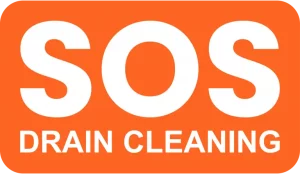
One of the worst and most common mistakes you can make is pouring grease down your kitchen drain. We get it. The kitchen drain is the easiest way to get rid of cooking grease and oil after making a delicious meal. However, grease and oil can muck up your drain system and cause serious problems.
If you want to learn proper grease and oil disposal methods, you’ve come to the right place!
Why Are Grease and Oil Bad for Drains?
Grease and oil are among the most common causes of drain clogs. Grease clogs happen when people pour grease or hot oil down their kitchen drain. Even though they’re in liquid form when you first pour them down the drain, grease and oil quickly cool down and harden into a thick sludge, or even hard buildup.
Once grease starts to stick to your drain pipes, food particles and additional grease that go down the drain stick to the grease. Over time, this buildup of grease and oil gets larger and larger, and you’ll start to notice your drain getting slower. Wait long enough, and this will happen over and over again until you have a complete grease clog on your hands, resulting in a clogged drain or even sewer backups!
The Best Way To Dispose of Cooking Oil and Grease
Whether it’s bacon grease, vegetable oils, cooking fat, frying oil, or any other type of leftover cooking grease, it’s important to properly dispose of it. That means not dumping cooking oil or grease down the drain—even if you have a garbage disposal or grease traps. Instead, here are a few alternatives:
Use Old Paper To Absorb Grease Before Throwing It Away
One of the best ways to save your plumbing system and get rid of grease is to use old paper products. Paper towels, for example, do a great job of soaking up fat, grease, and oil. If you don’t want to use up new paper towels for this task, start saving your old ones. Once you’ve sopped up the grease, put the paper towels in your compost.
Dispose in a Sealed Container
Another option is to let oil, grease, and fat cool down, then pour it into a compostable bag and put it in your compost. If that’s not an option, pour it into a bag or sealed container like a food storage bag, old plastic shopping bag, or an empty peanut butter jar, then throw it in the trash.
Recycling Used Cooking Oil
If you want to save a few bucks while saving your drain and sewer system, you can recycle used cooking oils and grease. To reuse cooking oil, let it cool, then pour it into a food-safe storage container or sealable bag, while filtering it with a paper towel or a coffee filter as a strainer to catch any food particles.
When you’re done, store your recycled oil in the fridge or freezer until you’re baking or cooking something that requires grease, oil, or fat. That’s all there is to it! Just be sure to check the recycled cooking oil’s colour and smell before using it to ensure it hasn’t gone bad.
What if I Accidentally Poured Grease or Oil Down the Drain?
If you poured grease or oil down the drain before reading this article, don’t worry. A little bit (or even a lot) of oil won’t ruin your drains right away; it’s buildup that happens over time which causes clogs.
That said, if you poured grease or oil down the drain and want to minimize its effects, run your kitchen tap as hot as it’ll go for thirty seconds to try to keep the oil liquid until it flows out of your home’s drains. A few squirts of dish detergent wouldn’t hurt either.
Some people suggest pouring a mixture of baking soda and white vinegar down the drain, but we’ve never seen that help.
If your drains are running slowly even after you’ve done your best to keep oil and grease out of them, call SOS Drain Cleaning for assistance with a clogged sink in Calgary. We’ll get your kitchen sink draining like it should!




